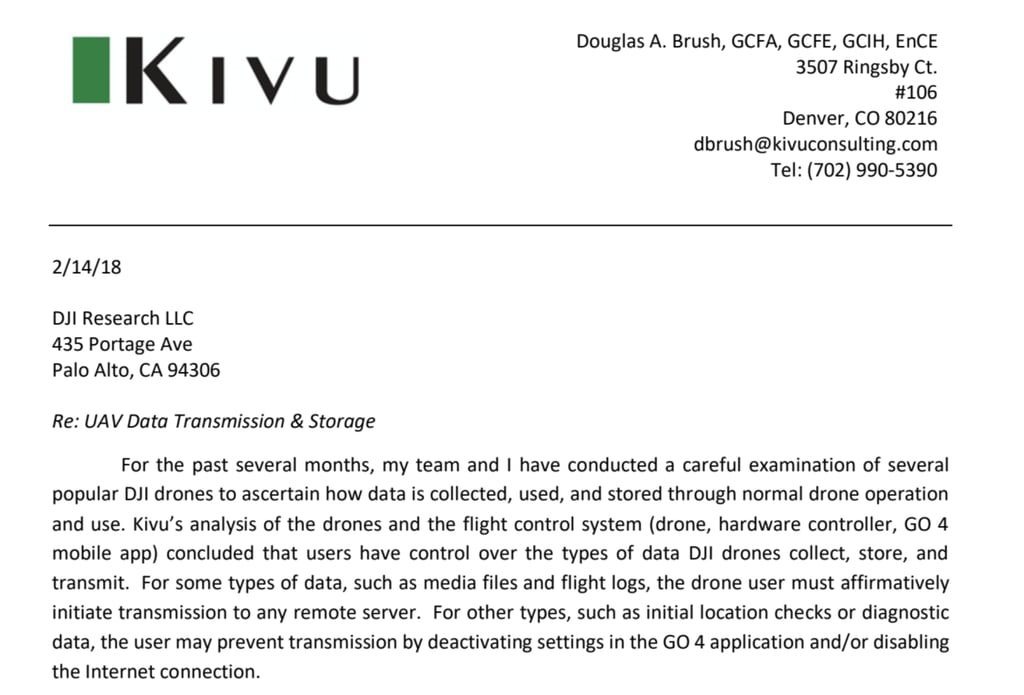DJI says a report proves it doesn’t spy, but that might not be enough for critics
Dominant player in consumer drones faced questions over data handling

DJI says it doesn’t send user data to China, pointing to an independent report it commissioned to fight rumors that information from its drones were being sent without the user’s permission. But one expert tells us it might not be enough for DJI’s critics.

The report says DJI doesn’t collect any information that can identify a person beyond a name or email address -- which it doesn’t try to verify, and therefore can be faked. And any data collected is sent to servers hosted in the United States by Amazon and Alibaba. (Abacus is a unit of the South China Morning Post, which is owned by Alibaba.)
“The comprehensive report clearly debunks unsubstantiated rumors about our products,” said Michael Perry, DJI’s Managing Director for North America.